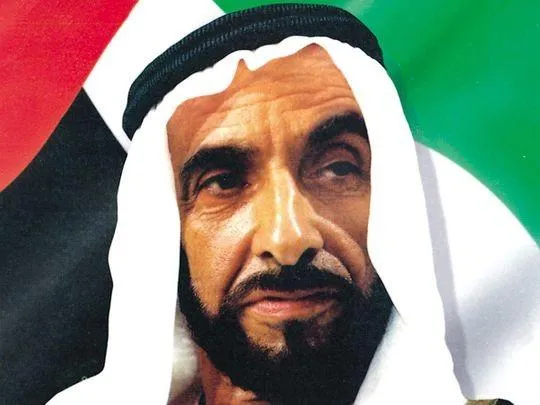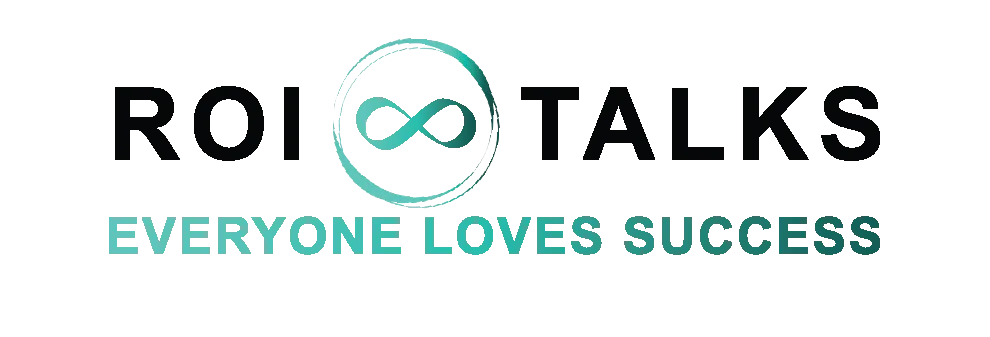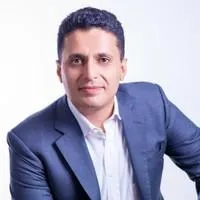Everyone Loves Success
ROI TALKS
Roi Talks Blog

What We All Can Learn About Leadership From Sheikh Zayed bin Sultan Al Nahyan?
Sheikh Zayed bin Sultan Al Nahyan was the founding father of the United Arab Emirates and a champion of human development, sustainability, wisdom, and respect. His vision and leadership played a critical role in transforming the UAE from a desert landscape to a modern, prosperous, and diverse society. Let's take a closer look at each of the four pillars of leadership:
Human Development: He believed that people were the most valuable resource of any nation and that investing in their education, health, and well-being was essential for achieving sustainable development. He championed universal access to quality education, healthcare, and social services, and recognized the important role of women and youth in driving social and economic progress.
He was a strong advocate of investing in human development, recognizing that people were the most valuable resource of any nation. He championed universal access to quality education, healthcare, and social services, and recognized the important role of women and youth in driving social and economic progress.
According to the World Bank, the UAE has made significant progress in human development over the past few decades. For instance, the country has achieved a literacy rate of 94.8% for both sexes, and the female literacy rate has increased from 79.2% in 1995 to 95.8% in 2019. The country has also achieved universal access to primary and secondary education, with a net enrollment rate of over 90% for both sexes.
He was a strong supporter of women's empowerment and recognized the important role of women in driving social and economic progress. As a result, the UAE has made significant progress in gender equality, including in areas such as education, healthcare, and political participation. For instance, according to the UNDP, women now account for more than 66% of all university graduates in the UAE.
Sustainability: He recognized the importance of preserving the environment and natural resources for future generations. He was a pioneer of sustainable development and led efforts to protect the UAE's natural heritage, including the establishment of protected areas, wildlife reserves, and marine sanctuaries. He also promoted sustainable development practices in agriculture, energy, and infrastructure.
He recognized the importance of preserving the environment and natural resources for future generations. He was a pioneer of sustainable development and led efforts to protect the UAE's natural heritage, including the establishment of protected areas, wildlife reserves, and marine sanctuaries. He also promoted sustainable development practices in agriculture, energy, and infrastructure.
According to the World Wildlife Fund (WWF), the UAE has made significant progress in environmental conservation over the past few decades. For instance, the country has established 44 protected areas, covering around 14% of the total land area. The UAE has also made significant investments in renewable energy, with a goal of achieving 50% of its energy mix from renewable sources by 2050.
In addition, the UAE has made significant progress in sustainable agriculture, with a focus on reducing water use and promoting organic farming practices. According to a report by the UAE Ministry of Climate Change and Environment, the country has achieved a 30% reduction in water use in agriculture between 2012 and 2017, through the use of advanced irrigation systems and improved farming practices.
Wisdom: He was known for his wisdom and foresight, and for his ability to balance tradition and modernity in the pursuit of progress. He believed that sustainable development required not only economic growth, but also social progress and cultural preservation. He emphasized the importance of dialogue, tolerance, and mutual respect among people of different cultures and faiths.
He was known for his wisdom and foresight, and for his ability to balance tradition and modernity in the pursuit of progress. He believed that sustainable development required not only economic growth, but also social progress and cultural preservation. He emphasized the importance of dialogue, tolerance, and mutual respect among people of different cultures and faiths.
The UAE has made significant progress in promoting intercultural dialogue and understanding. For instance, the country has established the Dubai International Peace Convention, which brings together religious leaders from around the world to promote peace and understanding. In addition, the UAE has launched a number of initiatives to promote cultural preservation and heritage, including the establishment of museums, art galleries, and cultural centres.
Respect: He was a strong advocate of human rights, equality, and social justice. He believed in the importance of treating all people with dignity and respect, regardless of their background or status. He championed the rights of women, children, and vulnerable groups, and worked to eliminate discrimination and promote social inclusion.
He was a strong advocate of human rights, equality, and social justice. He believed in the importance of treating all people with dignity and respect, regardless of their background or status. He championed the rights of women, children, and vulnerable groups, and worked to eliminate discrimination and promote social inclusion.
The UAE has made significant progress in promoting human rights and equality. For instance, the country has established the National Human Rights Committee, which is responsible for promoting and protecting human rights in the country. In addition, the UAE has launched a number of initiatives to promote social inclusion and empower marginalized groups, including the establishment of centres for people with disabilities and the elderly.
His legacy is one of human development, sustainability, wisdom, and respect. His vision and leadership continue to inspire the UAE and the world to pursue a more just, equitable, and sustainable future for all.
In conclusion, his vision and leadership have had a significant impact on the development of the UAE and continue to inspire positive change around the world. His focus on human development, sustainability, wisdom, and respect has led to significant progress in the country and has become a guiding principle for the UAE's development.
His vision aligns with the United Nations' Sustainable Development Goals (SDGs), which aim to end poverty, protect the planet, and ensure prosperity for all. The UAE has been actively working towards achieving the SDGs, and in 2020, it became the first country in the Arab world to submit its Voluntary National Review (VNR) to the United Nations, outlining its progress towards achieving the SDGs.
His legacy also highlights the importance of leadership in driving positive change. According to a study by the McKinsey Global Institute, effective leadership is critical for achieving sustainable development, as it helps to create a shared vision, mobilize resources, and drive progress. His leadership provides an example of how effective leadership can lead to significant progress and positive change.
Sheikh Zayed bin Sultan Al Nahyan's vision and leadership continue to inspire the UAE and the world to pursue a more just, equitable, and sustainable future for all. His focus on human development, sustainability, wisdom, and respect provides a roadmap for achieving sustainable development, and his legacy reminds us of the important role that leadership plays in driving positive change.
ROI TALKS™
Marina Plaza - Office 1004 -1006
Dubai Marina, Dubai, UAE





